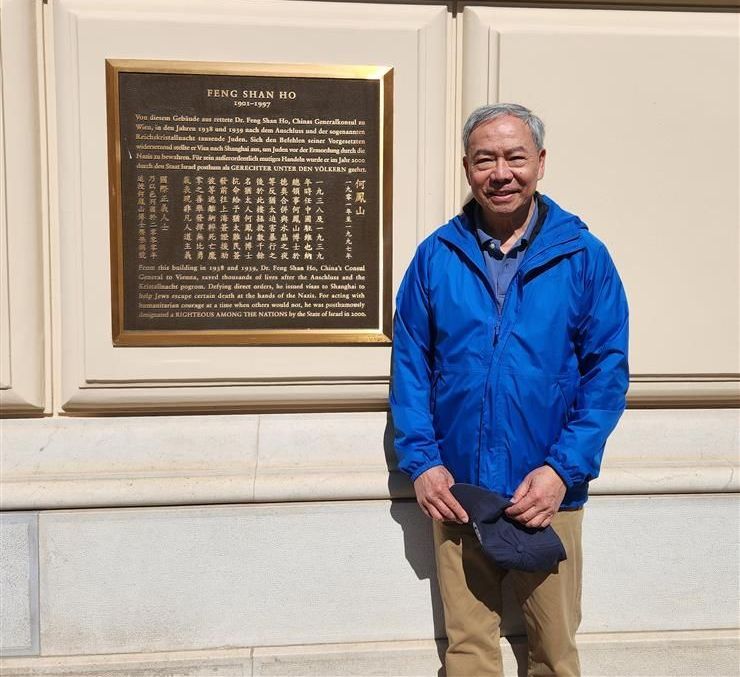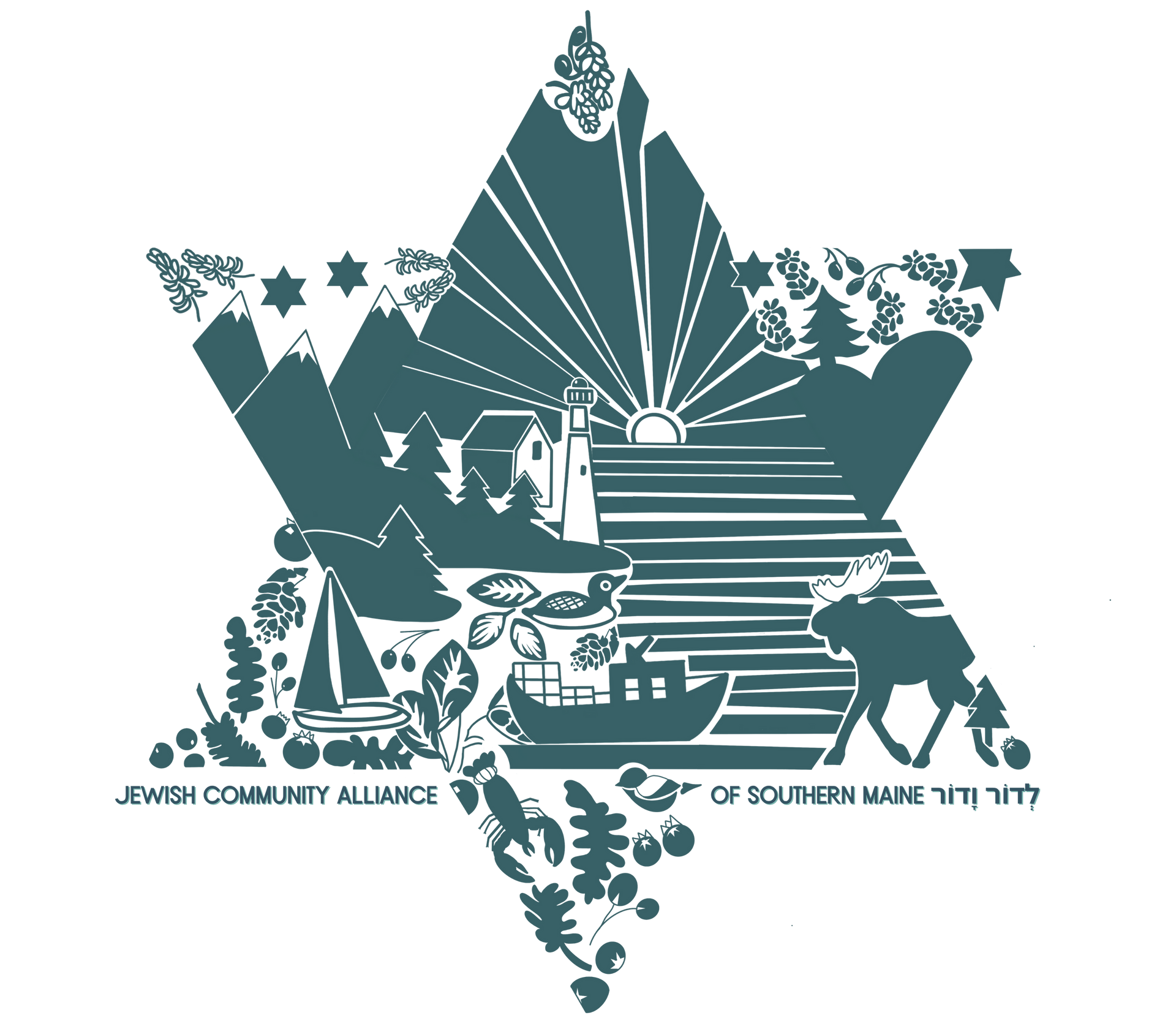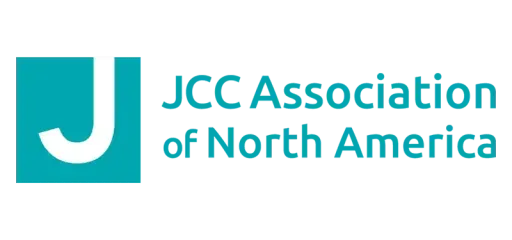JCRC Spotlight - Kwok-Kam Yeung
A Ketubah In Shanghai

Kwok-Kam Yeung posing next to a plaque at the former Chinese Consulate in Vienna, which commemorates
Dr. Feng Shan Ho, who saved thousands of Jewish lives during the Holocaust.
JCRC Spotlights feature non-Jewish Mainers with a connection to the Jewish community.
I had the pleasure of meeting Kwok-Kam Yeung at a recent event thrown by the Chinese-American Friendship Association of Maine. As soon as Kwok learned I was Jewish, his eyes lit up in excitement. As it turns out, Kwok is a bit of a Jewish historian! Kwok, who was born in Hong Kong and moved to Maine in 2006, published an article this year for the Sydney Jewish Museum about his discovery of a Jewish ketubah (marriage contract) written in Chinese.
Along with his friend and article co-author, David Horowitz, Kwok translated the ketubah and learned its incredible backstory. As Kwok writes in his article, “In 1933 the Nazis were elected to power in Germany. From the outset, they urged all German and Austrian Jews to emigrate. However, only two regions were willing to accept them: the Dominican Republic and Shanghai.”
This is the backdrop for why in 1946, a young Austrian-Jewish couple, sheltering in Shanghai, signed a ketubah written in Mandarin. We interviewed Kwok about his article, what he has learned about the Jewish people, and the values that Chinese and Jewish people share. We look forward to continued dialogue with Kwok and the rest of the Chinese-American community in Maine.
—Zach Schwartz
Director, Jewish Community Relations Council
Kwok, how did you get to writing this article?
I went on an around-the-world cruise in 2023. When the ship got to Sydney, Australia, a friend I had met on the cruise, David Horowitz, went to the Sydney Jewish Museum. He was surprised to see a Chinese document displayed there and he took a picture of it and asked me what it was.
When I read it, I immediately became clear it was a marriage certificate of two people from Austria. It has the date, it has the place where they got married, witnesses, and so forth. We ended up co-authoring an entire article on it, which was published by the Sydney Jewish Museum.
Were you familiar with Jewish history before you wrote the article?
No, this was the first time for me. In fact, I’m a biochemist by training, but this was the first historical article I have ever co-authored. I learned a lot along the way—David Horowitz was very helpful in teaching me about Jewish history.
What did you learn about the Jewish community while writing the article?
Well, I just admire the resilience of the Jewish people. In fact, we went on another cruise a couple months ago, and we were in Vienna and Prague, so I took a couple of local tours [on Jewish history]. We were learning about how for centuries, when anything went wrong, they blamed it on the Jews. If there was a famine, [people] would claim the Jews caused it. If there was a drought, [people] would claim the Jews caused it. And in all those circumstances, the Jews continued to thrive; they continued to make a life for themselves and their families.
That is just remarkable. It is just amazing that in all the worst circumstances, after [the Holocaust] and all the Jewish lives lost during World War II, the Jewish people have come out okay. And the Chinese have a history of doing that as well.
What do you feel Chinese and Jewish people have in common?
There’s a lot of things that are very common between the Jews and Chinese. We pay a lot of attention to education. Family values are very important to us both.
Both Chinese and Jews are very adaptable. We get into situations which may not necessarily be favorable, and yet we make a living out of that. With both Chinese and Jewish history, we went through some very hard times, and yet we always got through it—one way or another.







